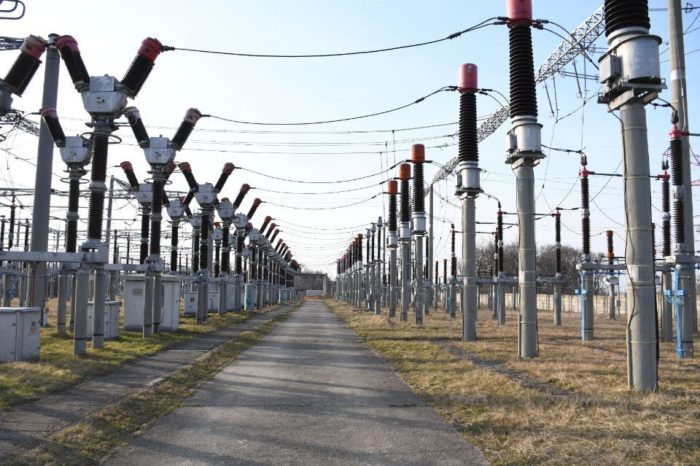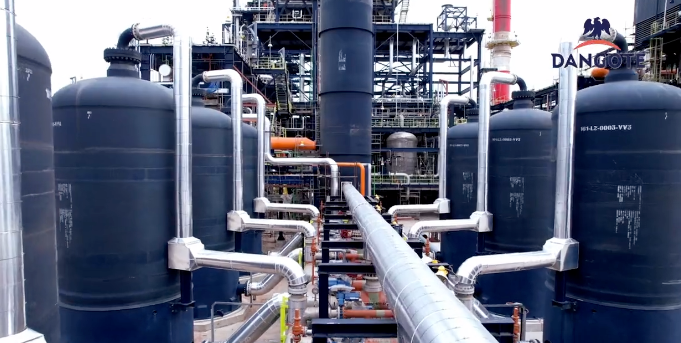Review of PIA against global energy transition era

Energyday Editorial
It is no longer news that the much awaited petroleum industry bill (PIB) had been assented to by President Muhammadu Buhari and it’s now known as the Petroleum Industry Act (PIA).
But what is now of serious concern to many stakeholders in the industry is the place of the new law in relation to the global transition to renewable energy against the backdrop of our dependence on fossil fuels.
The drive towards the phasing out of non-renewable energy sources in favour of renewable energy is no longer mere wish but a strong clamour and the future.
As usual, Nigeria seems to be playing ignorant to the move, perhaps assuming that the world will be waiting for us. But the reality is that it’s not the case. While it took us two decades to enact a law for the regulation and fiscal operations of our oil and gas industry, the global community did not wait for us. They forged ahead and it became our lot to now play catch up.
Unfortunately, we appear to be arrogantly thinking that we can do it on our own terms. Presumably, because we claim to be the giant of Africa.
However, recent reviews and critical analysis of the PIB by some reputable experts leave no one in any doubt that Nigeria needs to redirect the focus of the energy sector if indeed we desire the future generations to benefit from it.
At EnergyDay we believe that the PIB may not have come at the wrong time, but how we engineer it’s application in an era of global transition from hydrocarbon to renewable energy is of essence.
The Act in our view must be used as a tool to gravitate the country towards the path of economic transformation.
This is why we are worried that despite experts claims that the Act seems to be geared towards hydrocarbon, with less focus on renewable energy at a time the world is heading that direction, it is not too late in the day to do the right thing.
It’s our opinion that as the world is making the transition to renewable energy, our laws and policies should go along with the current tide instead of swimming against it. Wisdom demands we make the required leap towards transiting into the renewable energy space.
Obviously, the excess of the PIA is to attract investment into the energy sector in particular and the country in general. In this regard, the foreign investment we are sourcing doesn’t heed to sentiment. It goes to were it deems conducive, by implication, where prospect of safety and equitable return is guaranteed. To assure this, we must be seen to be working in line with acceptable norms and standards.
This medium is concerned like most stakeholders that the PIA by its very essence is hydrocarbon-centered. While the PIA is expected to attract investment into the Nigerian oil and gas sector, and serve as a catalyst for the development of the sector, the PIA doesn’t say much on the energy transition and its likely impact on the sector and its outlook.
This is in the opinion of this medium the greatest drawback of the exhilarating PIA.
In recent times, clean energy has accounted for the majority of global investments in the energy sector. According to the International Energy Agency (IEA), investments in new power generation are expected to account for 70% of 530 billion USD to be spent on all new generation capacity in 2021. In 2017, the World bank announced that it would no longer finance upstream oil and gas projects. In exceptional circumstances in the poorest countries where there is a benefit to energy access and this is consistent with the countries’ NDC commitments, the World Bank Group will consider upstream natural gas projects.
The foregoing puts to question how much investment Nigeria will be able to attract into the oil and gas sector with the PIA amidst the energy transition.
Similarly, considering the projected decline in global demand for hydrocarbons, leading oil and gas production companies are cutting back significantly on their oil and gas business and on further investment into fossil fuel.
For example, BP, the parent company of Shell Nigeria has announced that it would be suspending oil and gas exploration in new countries from 2021. It also aims to make a tenfold increase in its spending on low carbon energy. Back home, Shell Nigeria, based on the new global perspective, launched a 2021 strategy plan saying it aims to decrease its total oil production by 1-2% per annum and make no new frontier exploration investment by 2025. The broad theme of Shell’s strategy is that its upstream petroleum business will generate the cash to fund the growth of its low carbon business.
The implications of Shell Nigeria’s announcement is better comprehended when you know that the company accounts for about 50% of Nigeria’s oil and gas production.
Meanwhile, the company, in connection to its global strategy and plan to have 55% gas in its global portfolio by 2030, Shell has embarked on a full divestment of its onshore and shallow water portfolio in Nigeria.
It is expected that similar divestments by other International Oil Companies (IOCs) operating in the country would occur in the coming years.
The foregoing puts to question how much investment Nigeria will be able to attract into the oil and gas sector with the enactment of the PIA amidst the global energy transition trend.
Although, PIA appears to focus on gas as the transition fuel for the country, the extent to which we’re interested in driving it remains to be seen.
We can’t but acknowledge that the Act provides improved regulations and incentives for gas investment with tax holidays of up to 10 years and expansion of incentives to cover midstream gas operations. Section 64 of the Act also stipulates that NNPC Limited is to engage in the development of renewable resources in competition with private investors.
Unfortunately, that is how far it goes. But Nigeria needs to and must do more in terms of providing the enabling infrastructure, regulatory framework and the right level of investment environment for the energy transition.
According to the World Economic Forum, a country’s energy transition readiness is measured by six factors: the availability of investment and capital; effective regulation and political commitment; stable institutions and governance; supportive infrastructure and innovative business environment; highly skilled human capital and consumer participation; and robust energy systems structure.
Interestingly, one of the reasons we can’t act in isolation is that many high energy consuming countries have set deadlines for phasing out internal combustion engines in favour of electric vehicles. This transition could deal a big blow to crude oil producing countries like Nigeria. The timetable for phasing out hydrocarbon fired vehicles are pretty tight with the following notables: 2025 for Norway and India, 2030 for Germany and France while the UK has set 2040 for itself.
While we accept the argument that countries with unstable electricity supply would find it difficult to embrace electric vehicles since charging would remain a challenge. Statistics, however, shows that renewable energy now accounts for about 20% of the global energy supply. The push to take that number up continues, it is an incontrovertible fact that the world still has a long way to go in the displacement of fossil fuels as the choice for mainstream energy usage, the question however is must we always lag behind?
We submit that the Presidential task force for the implementation of the PIA chaired by the Minister of State for Petroleum Resources, Chief Timipre Silva, must note that the new mantra in the global energy space is that we are entering the world of gas, touted everywhere as the fuel for the future.
Luckily for us, Nigeria is said to be a gas nation with little crude oil. Since the world is embracing gas which we have in abundance, reason demands that we focus on it and make it the centre of our energy transition.
Doing so will go beyond mere declaration of 2021-2030 as a Decade of Gas. We must walk the talk. Our policies and regulations must drive investment into the subsector. It is disheartening to hear that Nigeria import 70% of its domestic cooking gas while only 30% percent is produced at home.
We must not repeat the mistake of allowing only the national oil company to invest in the refining of crude to happen to the gas sector. We must at least take the lead in championing gas as source of energy transition in Africa.







